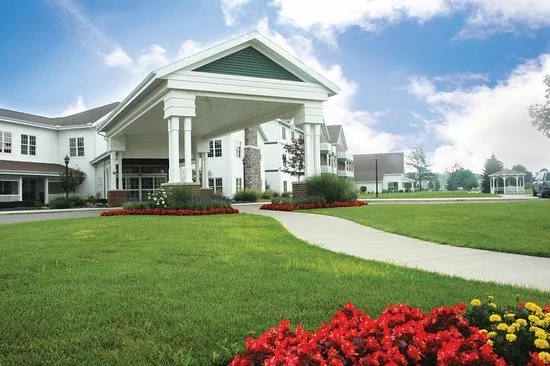September 16-18 2022
The Essenhause in Middlebury, Indiana
In Person and Virtual Attendees Welcome
By: Norman Wetterau
For those who come: the program, fellowship, getting back together, sharing and honoring some who have gone to heaven since we last met.
For all; a very challenging program: Addressing Same Sex Attraction from a Christian Perspective.
Our board felt that this was a very current issue in our churches, and an issue that has theological, social, psychological, and medical perspectives. We have two speakers, plus a panel of our members who will present medical perspectives and respond to the speakers.
Rodney Bassett: Has a Ph.D. in psychology from Ohio State and taught psychology for 44 years at Roberts Wesleyan College, including courses in Human Sexuality. He has published over 100 articles on a variety of research projects with his students, that shared the common theme of viewing psychology through the lens of Scripture and the Christian Faith.
Rev. Bruce N.G. Cromwell: A member of the FMCUSA’s Study Commission On Doctrine (SCOD), and Superintendent of the Great Plains and MidAmerica Conferences. He has written a book, ”Loving From Where We Stand”. Here he tackles one of the most pressing issues of the day in this practical guide for Free Methodists. In reviewing the book Dr David Bauer says that “Bruce Cromwell offers a vision of the Church’s response to those who experience same-sex attraction, that is truly biblical, is richly theologically informed, and holds the promise of being pastorally and missionally effective….. He compellingly insists that we must avoid the false alternative of either loving the homosexual or maintaining the biblical perspective. This is one of the healthiest and most holistically biblical treatments of this issue that I have encountered.” During his talks on Friday night and Saturday morning he will present key points from the scripture, suggest positions a church might take and then present what our Free Methodist Leadership has chosen as our position. There are two important parts of our position: whether the activity is right or wrong, and how we treat those who are involved in that activity. He proposes expressing love through a welcoming inclusion with accountability.
Rod Bassett is a psychologist who has taught at a Christian College all of his career. In the Friday night session, he will present an overview of homosexuality through the lens of psychology. Do we know why people become homosexual? Are there biologic differences between heterosexual and homosexuals? What are some of the possible psychological /biological explanations for why some people become homosexual? As part of this discussion, he anticipates talking about different way to conceptualize same-sex attraction and statistics on frequency.
On Saturday morning’s session he hopes to address changing attitudes he has observed among college students. For many of these students this topic has shifted from a Biblical issue to a social justice issue. He plans to discuss Moral Foundation Theory and to spend time talking about psychologic suggestions for being able to love your neighbor when that neighbor h adopted a lifestyle or views that are contrary to your own
Both speakers, social psychologist Dr Bassett and Theologian Bruce Cromwell will address the theme of loving the sinner but not the sin. Is homosexual activity a sin, and if so, how do we individually and as a church relate to those who practice this. (this is really the theme of Dr Cromwell’s book) Also what aspects of this is a sin: the attraction, any sexual relationship or as in the case of homosexuals, any relationship outside of marriage? Should we as Christians or a church recognize same sex marriage?
There will be over an hour set aside for questions on any aspect of this topic. On Saturday afternoon there will be a 2 hour zoom session for just college students and young people. There will be a brief review of what has been covered Friday night and Saturday morning but with a special emphasis on how we view and treat homosexuals. Over half of that 2 hour session will be devoted to questions and discussion.
Saturday evening the speakers will address the issues of companionship and intimacy. If Christians believe that sexual relationships are only acceptable in a marriage between a man and a woman, then how can single people develop close companionship and intimacy at some level? Also , churches tend to be made up of married people with children. How can the church promote healthy Christian relationships for those who are not married, which could include people with same sex attraction who choose not to have sexual involvement, as well as single heterosexual people, those divorced or widowed? On Saturday evening several board members will also address how we as health care professionals should care for those in same sex relationships. Are there special health issues that need to be addressed?
All sessions Friday night and Saturday morning will be available on zoom for those who cannot attend in person. They will need to register and pay a small fee. In addition, our fellowship wants to reach out to college students. There will be a special 2 hour zoom meeting Saturday afternoon for students or other young adults who may not be members of our fellowship. We hope that as a result some may join our group. Students can attend all the sessions on zoom, or in person if they wish (some scholarships are available) but many may choose to just attend this special session which will include at least a half hour for questions and answers. There will be no charge for students. Address questions to: normwetterau@aol.com
Mark your calendars and share this information with others. More information on how to register will be sent out in May and will be available on www.fmhealth.org. By mid May, one can register for both the in person retreat and the online sessions on our website www.fmhealth.org .
Pictured: Essenhaus Inn and Conference Center, Middlebury, Indiana















